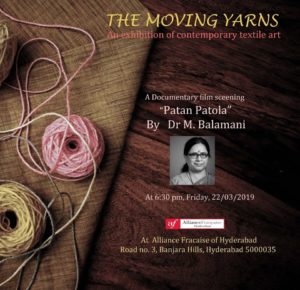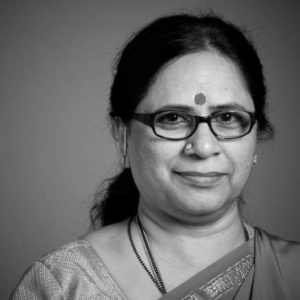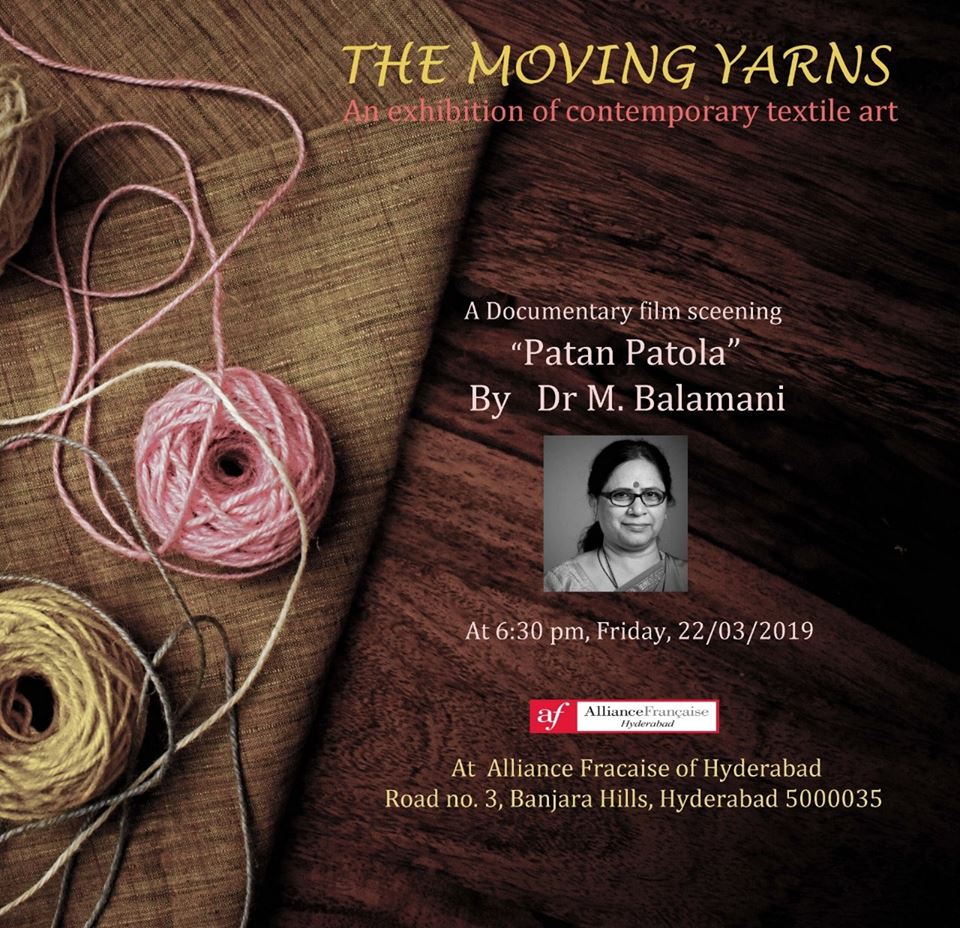

Patola: cloth of kings
The complexity and time-intensiveness is what makes Patola so valuable. A dizzyingly mathematical process, Patola saris are woven using dyed threads both vertically (warp) and horizontally (weft) to create the design. The strings are dyed according to a pattern, and the dye marks align when woven, forming the pattern on the cloth.
A Documentary Film Screening on Patola saree making, “Patan Patola” by Dr. M. Balamani : 6:30 PM, 22-03-2019 (Friday)
Dr.M.Balamani is an independent Art Historian, Art Critic & Cultural analyst, Ph.D from the Dept. of Art History & Aesthetics, Faculty of Fine Arts, M.S.University of Baroda.
Patola is a double ikat woven sari, usually made from silk, made in Patan, Gujarat, India. The word Patola is the plural form; the singular is patolu. They are very expensive, once worn only by those belonging to royal and aristocratic families. These saris are popular among those who can afford the high prices. Velvet patola styles are also made in Surat.
Patola-weaving is a closely guarded family tradition. There are three families in Patan that weave these highly prized double ikat saris. It is said that this technique is taught to no one in the family, but only to the sons. It can take six months to one year to make one sari due to the long process of dying each strand separately before weaving them together. Patola was woven in Surat, Ahmedabad and Patan. Highly valued in Indonesia, became part of the local weaving tradition there.
The main difference between a Pochampally and a Patola, both using the Ikat technique, is that of geography and the design language. Pochampally, Ikat & Patola, essentially refer to the same technique of weaving, which is a cross-over between printing and weaving.
To create a patola sari, both the warp and weft threads are wrapped to resist the dye according to the desired pattern of the final woven fabric. This tying is repeated for each colour that is to be included in the finished cloth. The technique of dyeing the warp and weft before weaving is called double ikat. The bundles of thread are strategically knotted before dying.
Patola saris from surat, Ahmedabad and Patan are renowned for their colorful diversity and geometrical style.
A Documentary Film Screening on Patola saree making, “Patan Patola” by Dr. M. Balamani : 6:30 PM, 22-03-2019 (Friday)
Dr.M.Balamani is an independent Art Historian, Art Critic & Cultural analyst, Ph.D from the Dept. of Art History & Aesthetics, Faculty of Fine Arts, M.S.University of Baroda.
She delivered special lectures at many institutions and universities, Curated many thematic exhibitions on Modern and Contemporary Arts, art camps, art workshops, also making short documentary films on art/artists/crafts, edited a book “Museums in Gujarat” for Directorate of Gujarat Museums, contributed articles too for the same. She published around 200 articles in English and Telugu that include national and international publications, regular articles for Art Journals, News Paper columns, on Modern and Contemporary art, Social and Cultural History, travelogues and short stories.
Dr M. Balamani is an art critic, art historian and curator. She has received her Ph. D degree from the Department of art history and aesthetics, Faculty of fine arts, M.S.university, Baroda. Along with her curatorial projects, she also made documentary films on Indian Art, artists and crafts.
Patan Patola is a documentary film on the ikat weavers of Patan, in Gujrat. They weave Patola, the double ikat woven sarees which are rich in color, intricate design, pattern and specially technique. Patan weavers are the masters weavers in Ikat or tie and dye weaves. Generally to weave one saree it takes 6 to 24 months and price starts from 1 lakh Rs. In this documentary she aims to show the long and laborious processes of making Patola sarees and also to investigate the present situation of the weavers.
The Moving Yarm ongoing exhibition curated by Palakshi Dass and with 5 more artists is open to all from 9.30am to 8pm on all days till 22nd March.
Entry Free. All are welcome.
For further information, please contact


